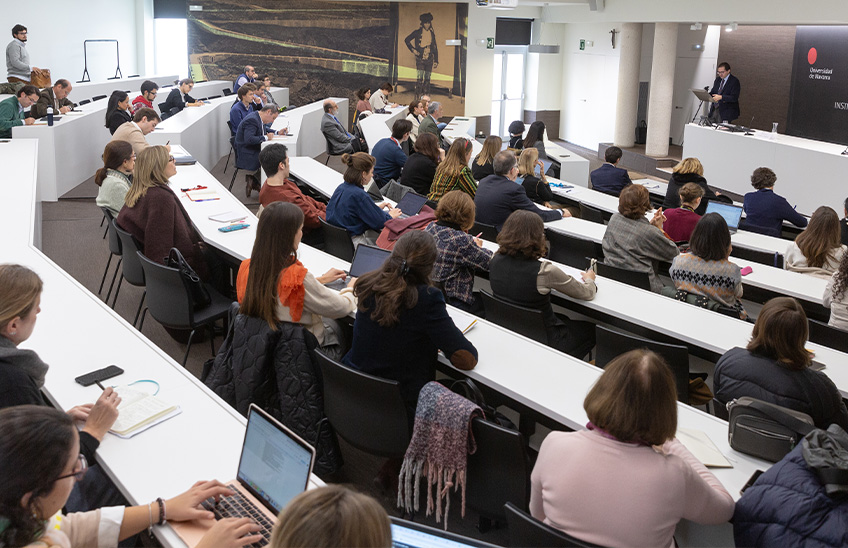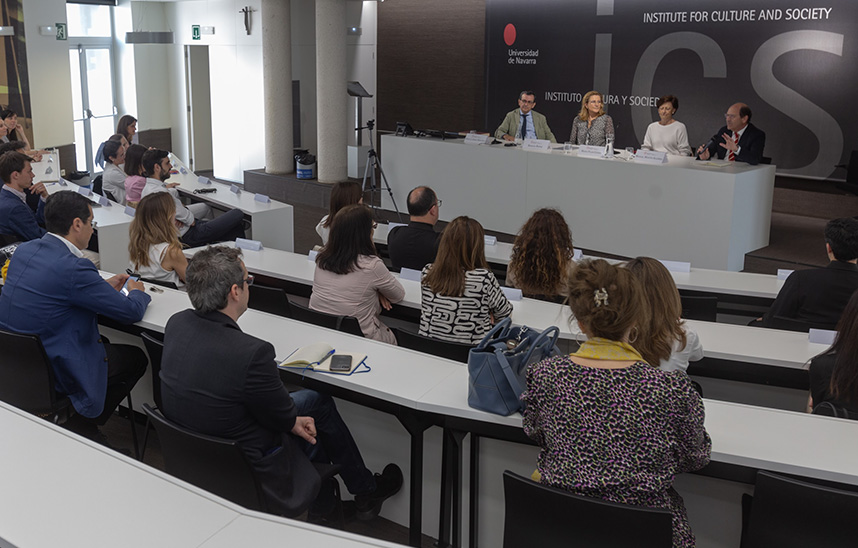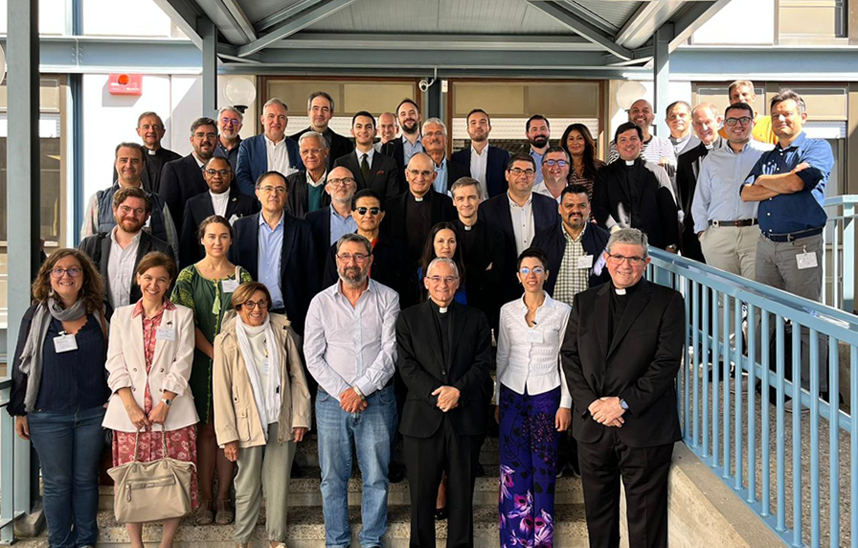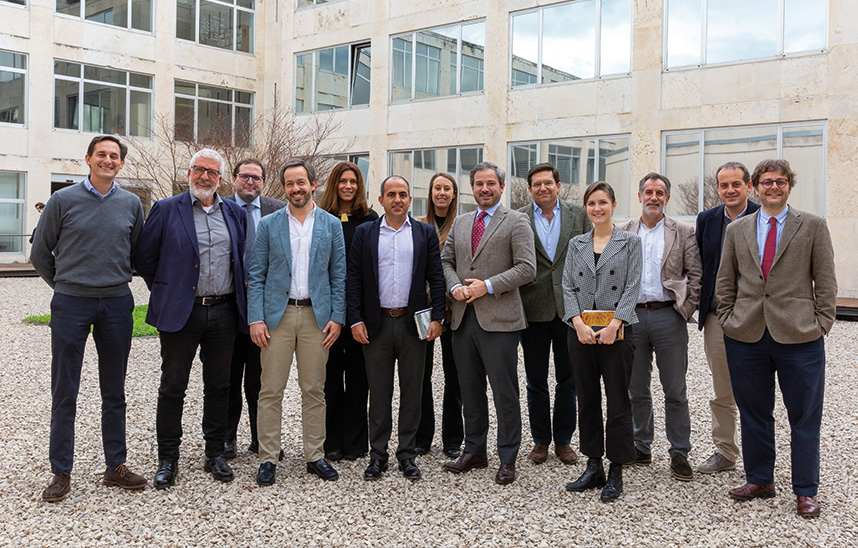noticia_ICC_2021_05_28_JornadasAfectividad
"We must help young people overcome affective illiteracy."
More than 5,000 people from 47 countries attended the course "The Education of Affectivity" organised by the high school Core Curriculum of the University.
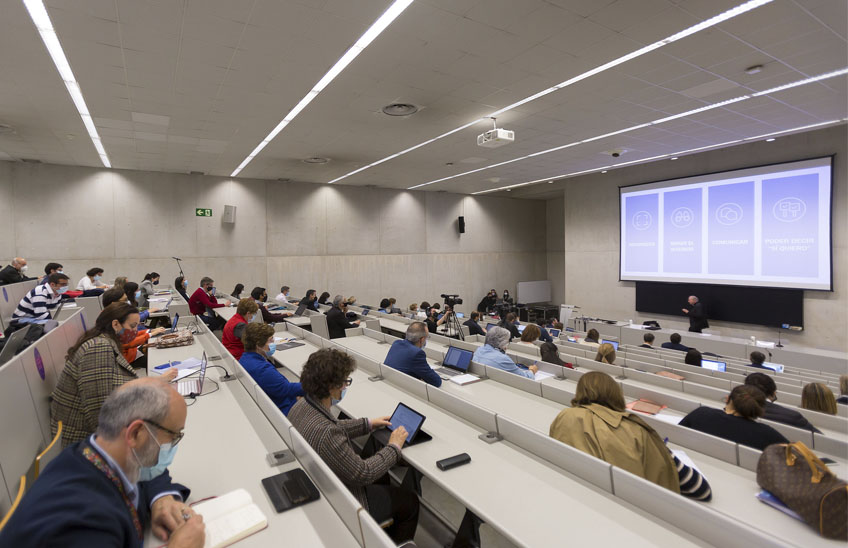
FotoManuelCastells/More than 5,000 people from 47 countries on five continents attended the course in person or online.
28 | 05 | 2021
"We must help young people to overcome the affective illiteracy that prevents them from discovering what love asks of each person", affirmed Juan José Pérez-Soba, Full Professor of the Pontifical high school John Paul II Theological Centre for the Sciences of Marriage and the Family (Rome). The expert was speaking at the course "The Education of affectivity: anthropological principles and practical applications"organised by the high school Core Curriculum of the University of Navarra.
More than 5,000 people from 47 countries of the five continents followed the course, either in person or online, with the participation of Juan José Pérez-Soba; Nieves González Rico, academic director of the "development y Persona" Institute of the Francisco de Vitoria University; and Jokin de Irala, Full Professor of Preventive Medicine and Public Health and researcher of project Education of affectivity and human sexuality of the Institute for Culture and Society of the University of Navarra.
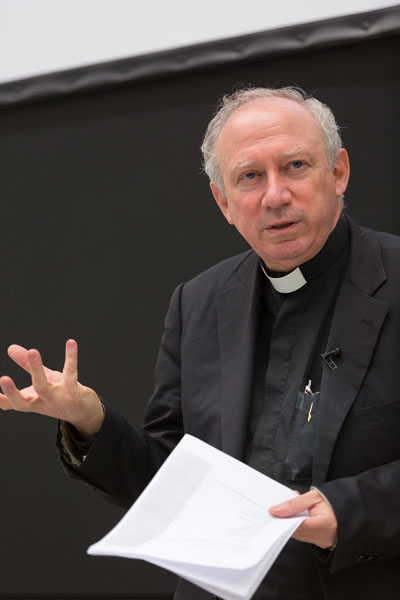 Pérez-Soba recalled in his interventions the central role of emotions in the training of young people. "The Education has to be a Education first and foremost in the affections; and ignoring it generates a void in young people that makes it difficult for them to find the meaning of what they are experiencing", he affirmed. For his part, Jokin de Irala stressed that young people have a deep longing to give themselves to another person. "We can help them on their path of growth. The first step is for them to feel sincerely welcomed, loved, by those who accompany them," he stressed.
Pérez-Soba recalled in his interventions the central role of emotions in the training of young people. "The Education has to be a Education first and foremost in the affections; and ignoring it generates a void in young people that makes it difficult for them to find the meaning of what they are experiencing", he affirmed. For his part, Jokin de Irala stressed that young people have a deep longing to give themselves to another person. "We can help them on their path of growth. The first step is for them to feel sincerely welcomed, loved, by those who accompany them," he stressed.
At the same time, researcher presented four opportunities that arise when faced with "any question from our children about affectivity and sexuality". The dialogue sample offered the possibility of explaining aspects about "our biology, our capacity to love, also about lifestyles and attitudes that make us grow in fullness, and also for openness to the transcendent".
For her part, Nieves González Rico recalled, referring to teachers, the importance of training educators "who announce the greatness and beauty of sexuality". She also emphasised "the fundamental task of dealing with simplicity and naturalness with regard to the identity staff of the pupils: who am I? who am I for?
The university, an engine of thought in society
Throughout conference, Pérez-Soba stressed the need for university institutions to recover their role in society as an engine of thought. The expert urged that "the university should not only respond to emergencies, but should be capable of looking towards a horizon that allows its students to find their own identity". To do this, it has to be a place of free thought. It needs to create a system of relationships between the members of the university community that generates precisely that subject of thought and a way of life that is what people need most.


